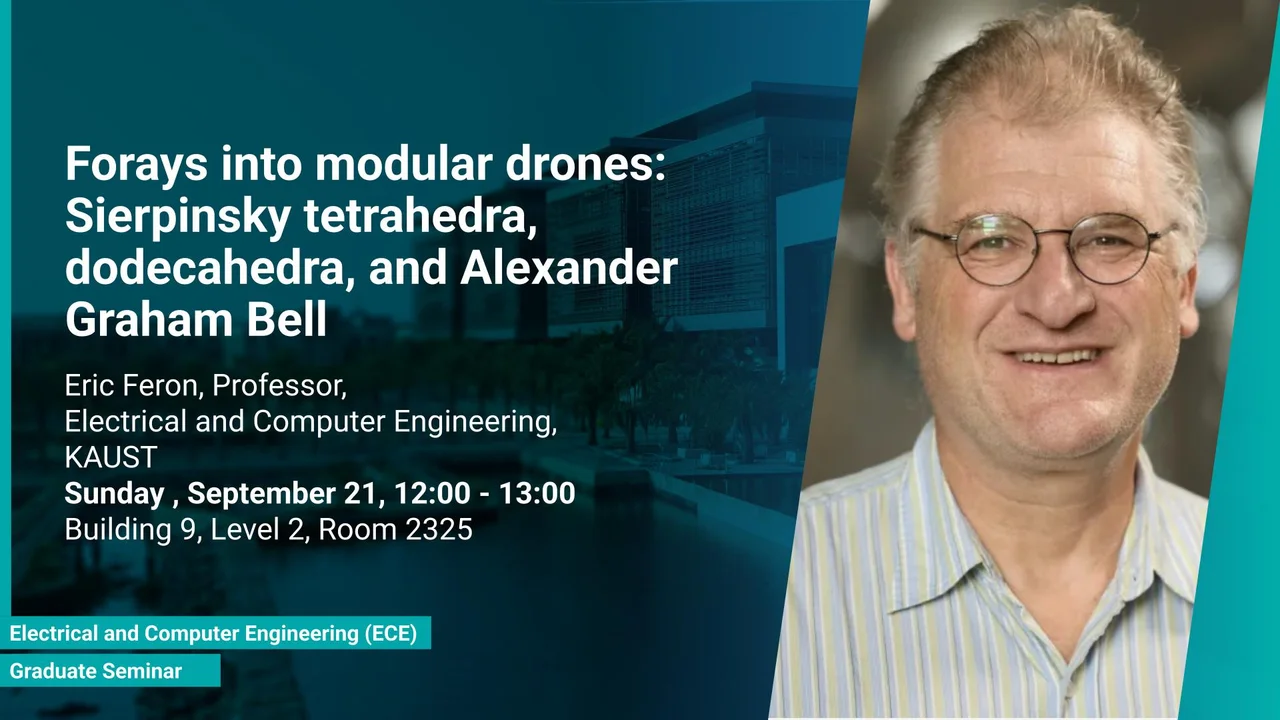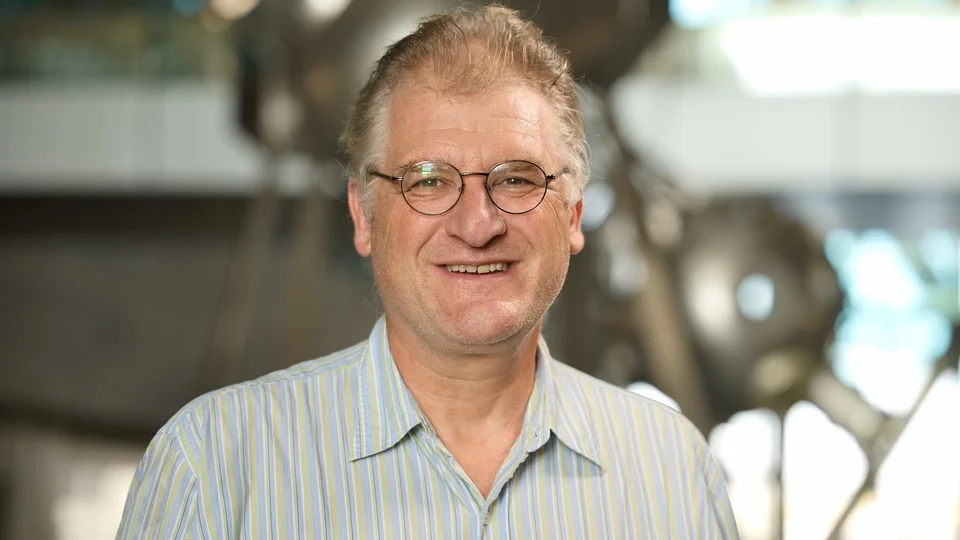
Forays into modular drones: Sierpinsky tetrahedra, dodecahedra, and Alexander Graham Bell
Modular drones offer attractive options for addressing demanding mission requirements without having to build monolithic and large machines. Several such drones have been designed, built, and flown at Georgia Tech's Decision and Control (DCL) laboratory and KAUST's Robotics, Intelligent Systems, and Control (RISC) laboratory. These drones attempt to address some of the perceived weaknesses of prior industrial and academic designs, including lack of structural integrity and possible identity confusion among the modules. Coincidentally, some of the designs echo the fractal kites designed by Alexander Graham Bell more than a century ago and still built and flown today.
Overview
Presenters
Brief Biography
Eric Feron is an Electrical and Computer Engineering Program professor, an affiliate of the Mechanical Engineering Program, and the Principal Investigator of the Aerospace and Transportation Systems (ATS) Research Group at KAUST.
His research focuses on the development of advanced control and optimization techniques for autonomous systems with applications in aerospace, robotics and transportation. At KAUST, he leads efforts in exploring innovative solutions for complex challenges in these fields, emphasizing safety, reliability and efficiency in autonomous systems' design and operation.
His academic journey began in Paris, where he earned a B.S. from École Polytechnique in 1989 and an M.S. from École Normale Supérieure in 1990. He completed his Ph.D. in Aerospace Engineering at Stanford University in 1994. Before joining KAUST in October 2021, he served as a faculty member at the Georgia Institute of Technology and the Massachusetts Institute of Technology’s Aeronautics and Astronautics Department.
Throughout his career, he has taught a wide range of courses, including cyber-physical systems, control systems, and flight mechanics, and is a strong advocate for quality online education resources.
Professor Feron has contributed significantly to both theoretical advancements and practical implementations in control systems, fostering collaborations across disciplines to drive progress in aerospace engineering.
